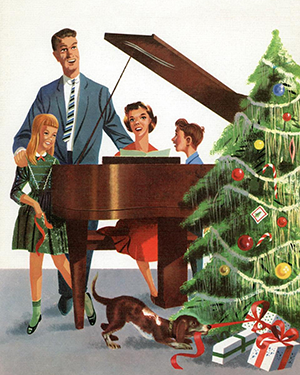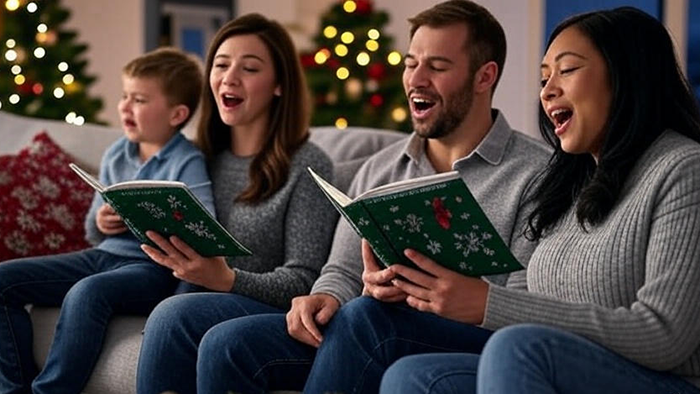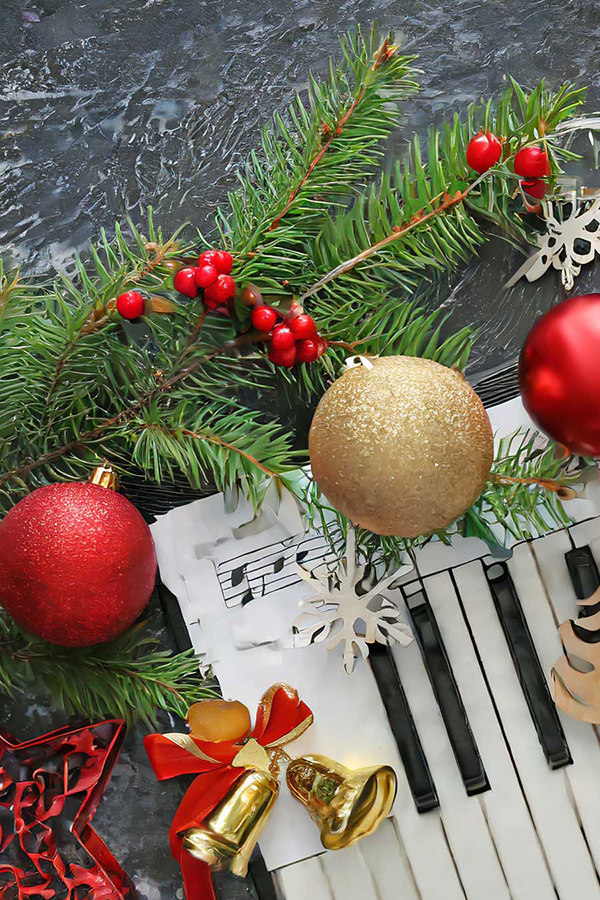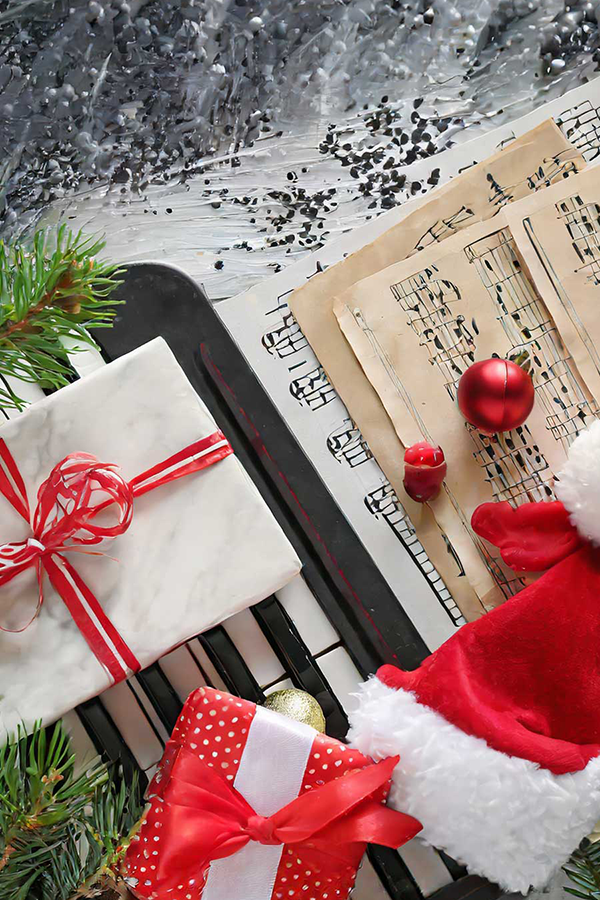Christmas Carols
Carols, Songs, Music, History, and Traditions
Learn how music expresses the Christmas season.
What is a Christmas Carol?

The word carol comes from the French word carole, meaning circle dance, or song of praise and joy. Naturally, Christmas Carols are songs of joy celebrating the birth of Jesus. In scripture the birth of Jesus is surrounded by music, "And suddenly there was with the angel a multitude of the heavenly host praising God, and saying, Glory to God in the highest, and on earth peace, good will toward men." (Luke 2:13-14).
The origins of Christmas Carols were adapted from ancient pagan songs that celebrated the Winter Solstice. The Winter Solstice is the shortest day of the year and usually falls on December 21st. For the pagans the solstice held a special meaning and their traditions persisted into the Christian culture. As early as 129 AD, songs sung around the solstice had been changed to Christian hymns to celebrate the birth of Christ.
Christmas Carols as we know them have been sung for centuries and originated in Italy during the time of St. Francis of Assisi. Around 1223 AD, St. Francis of Assisi had begun performing nativity plays to show the birth of Jesus to local people and the poor. St. Francis and his monks recreated the scene of Jesus' birth to show the people that Jesus had been born in circumstances similar to theirs and that he was not from wealth or privilege.
Most Christmas Carols have Christian meanings and traditions associated with them but not all do. In the late 1640's Britain's Parliamentary Party came to power and clamped down on the celebration of Christmas (including the music) along with other holy days. As the government clamped down on Christmas, the songs and carols were often sung in private which allowed them to be passed on to the next generation. The singing of Carol's was a praise to God and it was a tradition that could not be legislated out of British culture. In 1660 the laws were reversed and public singing of Christmas Carols was once again part of the Christmas season.
One of the most famous Christmas Carols, The Twelve Days of Christmas was written to preserve the Roman Catholic traditions and beliefs in 1640's Protestant Britain. The words of the song itself are a code to the Catholic traditions of the twelve days.
Christmas Carols in the Modern Day

Today we think of Christmas Carols as songs we sing with family around the Christmas Tree or a warm fire during the Christmas season. We may also think of them as songs sung by a cheerful group of people strolling through town spreading the Christmas cheer.
The popularity of singing Christmas Carols as we know it today really originated in the mid-1800's during the Victorian era. Two men by the names of William Sandys and Davis Gilbert published a collection of Christmas songs that they had collected from churches and small towns throughout Britain. This publication led to the revival of singing publically at Christmas and also inspired the tradition of "caroling" from home to home spreading the Christmas cheer.
The 7 Most Searched Christmas Carols

The most searched for Christmas Carols of the year
The 7 Most Searched for Kids Christmas Songs

Below are the most searched for childrens Christmas songs
The 7 Most Searched for Traditional Christmas Songs

Listed below are the iTunes top played Christmas songs